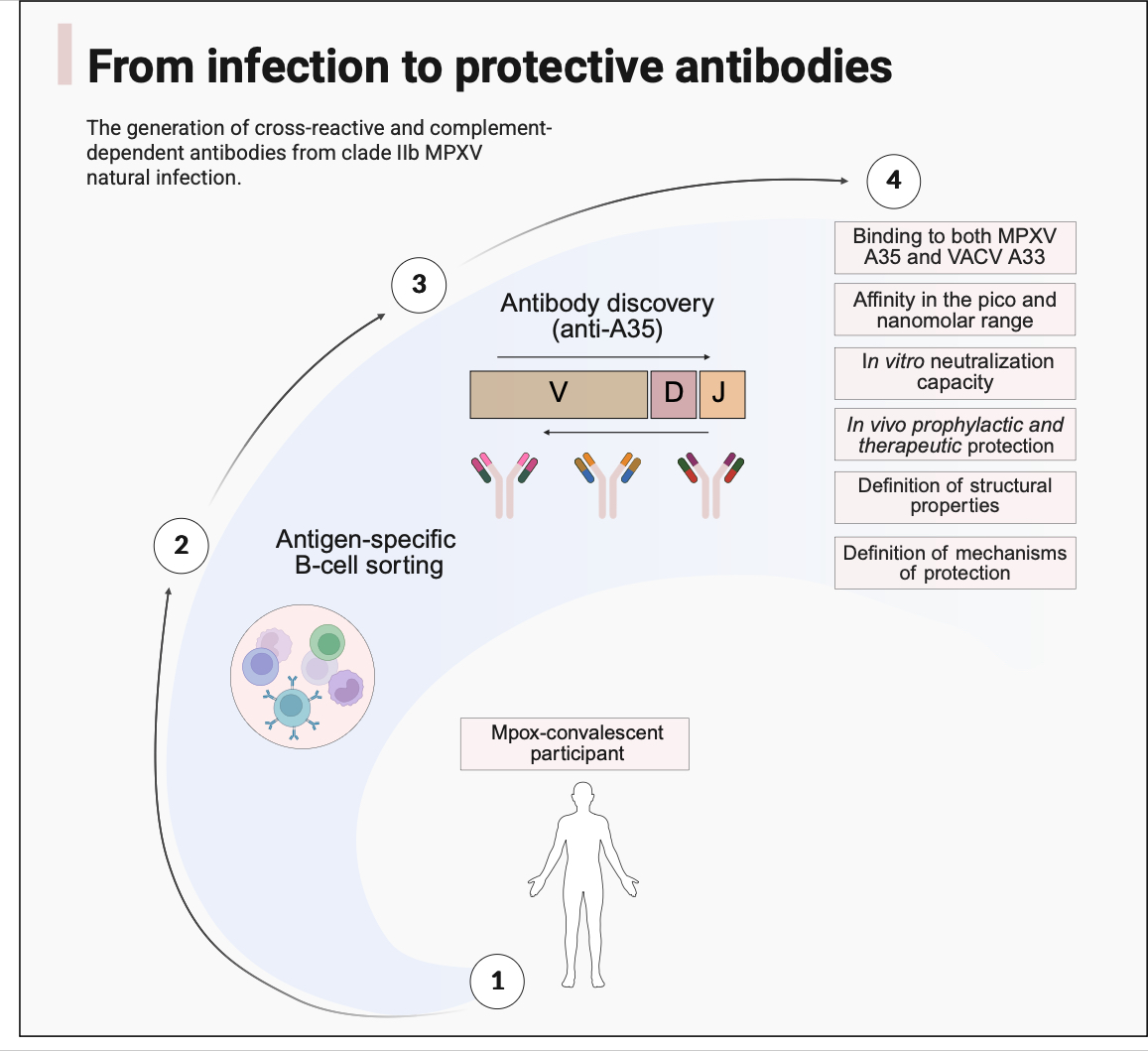

Mount Sinai scientists identified antibodies from a recovered mpox patient that specifically recognize the viral protein A35. These antibodies not only neutralize the virus and protect animal models from disease but also mirror protective immune responses in humans, establishing A35 as a key target for future antiviral strategies.
Findings provide new hope for preventing severe disease
A team from the Microbiology Department at the Icahn School of Medicine at Mount Sinai has discovered three powerful monoclonal antibodies from a person who had previously been infected with mpox (formerly known as monkeypox).
These antibodies, which target the viral protein A35, blocked viral spread in laboratory in vitro tests and, most importantly, protected rodents from severe disease and fully prevented death. The findings, published August 22 in Cell, also reveal that humans previously infected with mpox carry high levels of these protective antibodies in their blood, and that their presence is associated with milder symptoms and the absence of hospitalization.
